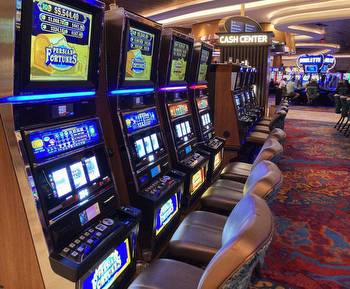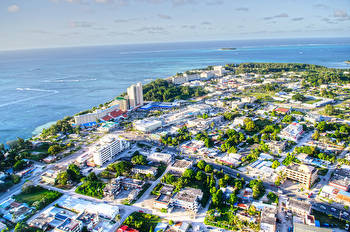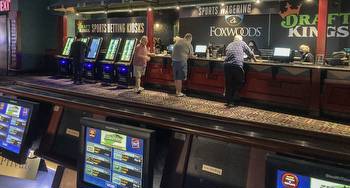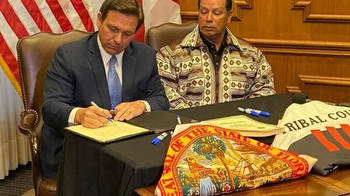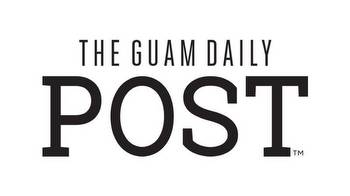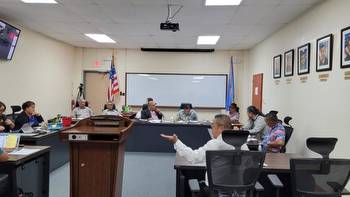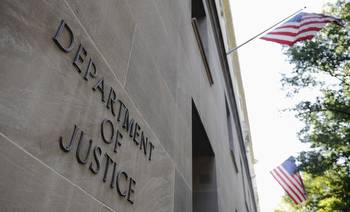Yeom on online gambling: It’s up to lawmakers to decide
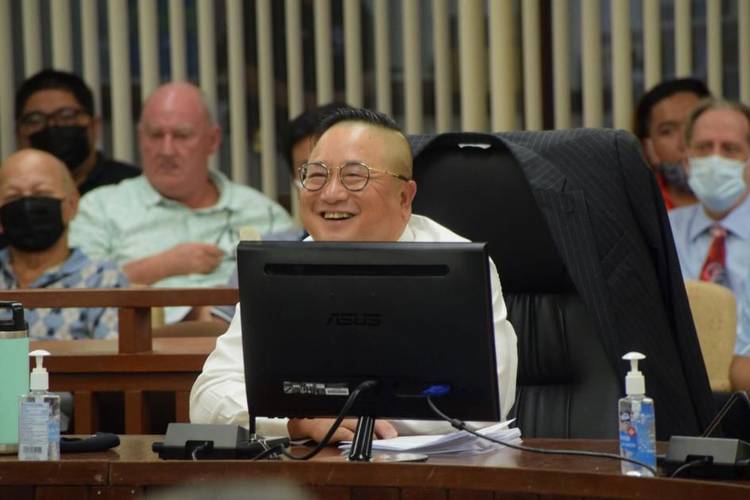
COMMONWEALTH Casino Commission Executive Director Andrew Yeom on Friday appeared before a House committee to present the findings of his research into the feasibility of internet gambling in the CNMI.
Yeom was invited by House Gaming Committee Chairman Edwin Propst to discuss the issue with lawmakers.
In his remarks, Yeom said he is not advocating the passage of the internet gambling measure, House Bill 22-47. “I’m just trying to lay out the facts out there,” he added.
Yeom reiterated his previous comments about the need to address concerns about the bill, and to look into its “pros and cons.”
He also noted that he would present “hypothetical numbers, and [these] are for projection purposes only,” and “do not represent actual numbers as there are no practical data available for the CNMI.”
Ultimately, he said, it is up to CNMI lawmakers to decide whether or not to allow internet gambling in the Commonwealth.
Yeom said “if all works out well,” a CNMI-based online gambling site has the potential to attract up to 2.1 million online users annually and could generate $450 million in gross revenue starting in 2025.
Propst, for his part, said his committee, “out of an abundance of caution,” will look at the “red flags” that have been raised regarding internet gambling, including the possible costs of regulating it.
“We were promised a $7 billion industry [by a] casino investor, Imperial Pacific International, and fast-forward [to] today, the casino commission is in need of $1 million to continue to operate,” Propst said.
He added that IPI's license has been suspended, and could be revoked by the commission.
Off-shore gamblers
Rep. Tina Sablan asked Yeom to explain who among off-shore gamblers based in other countries would be able to place bets online in the CNMI.
Yeom said online gamblers can be physically on island or not, but off-island gamblers can only place bets from countries where online gambling is legal.
Sablan asked Yeom if his projection assumes that off-shore gamblers from countries where online gambling is legal would be able to legally place bets in the CNMI despite the Federal Wire Act, which prohibits the operation of certain types of betting businesses in the U.S.
Yeom then informed the lawmakers about the update about a lawsuit in the U.S. that pertains to online gambling as it relates to the Federal Wire Act.
He said on June 21, 2021, the 150 days given to the U.S. Department of Justice to appeal a First Circuit court decision to the U.S. Supreme Court lapsed.
In January 2021, the U.S Court of Appeals for the First Circuit ruled that the Federal Wire Act applies only to sports betting and not to other types of online gambling.
Yeom noted that the U.S. DOJ “allowed the time window for an appeal to expire with no action, therefore the case is closed, and the First Circuit's ruling has prevailed.”
“In that circuit right?” Sablan asked.
“That is in the First Circuit, correct?” Propst added. “And we are in the Ninth Circuit.”
“I’m not a lawyer,” Yeom said, “but I’m saying that’s the fact and we have a Joe Biden administration discouraging any appeal.”
Sablan said their “objective as policymakers, as regulator and as a community should not be to bypass or circumvent, or get around the Wire Act. I hope that would not be the message or the takeaway that anybody gets from today's proceedings…. Others had questions about…projections in part because they made huge headlines about millions of millions of dollars that are going to come to the CNMI and I think there is a lot of public misconception about the reality and assumptions underlying those numbers.”
Blacklist
Sablan also told Yeom that “we have received fairly credible information, I think, that the CNMI has been added to China's blacklist and if we were to legalize online gaming that we will be permanently blacklisted for Chinese tourist arrivals.”
Yeom said there would not be online gamblers in China where it is illegal. Moreover, there is technology that provides “geolocation mechanism” to deny access to off-shore gamblers who are in countries where gambling is illegal, he said, adding that he is also unaware of the existence of a “blacklist.”
Rep. Celina Babauta said she doubts if the “beautiful figures” presented by Yeom are “realistic,” referring to his projected potential revenue.
“Whether you believe these numbers or not, it’s up to you,” Yeom said. “Like I’ve said I can’t guarantee these numbers either. These are potential numbers. It could be met [or] it could be totally wrong. I cannot…guarantee these numbers. [These] are [a] kind of visualization of what [the potential revenue] could be…. Don’t think that this is how it’s going to be or how it will be exactly.”
Rep. Vicente Camacho told Yeom that he, Yeom, “talked more like an online gambling operator than a regulator.”
Camacho said next time, Yeom should “bring in” an internet gambling operator.
“That is exactly my concern before I came over here,” Yeom said.
“When I talked to you, chairman, I did not want to be here to talk about this because that is exactly what would be portrayed, an image of myself. I am a regulator. I should not be talking like an operator. But the chairman insisted that I come over here and to at least share my knowledge of what is out there. I'm just trying to give you that,” Yeom said.
“If that is not my place to be, then please, don't call me here to say so. That is exactly what you asked me to do, to share my knowledge…[regarding] online gambling for the CNMI…. I'm just trying to share as much as I can so that you can make a decision — whether it’s positive or negative, that is up to you. But I'm just here to give you information.”












